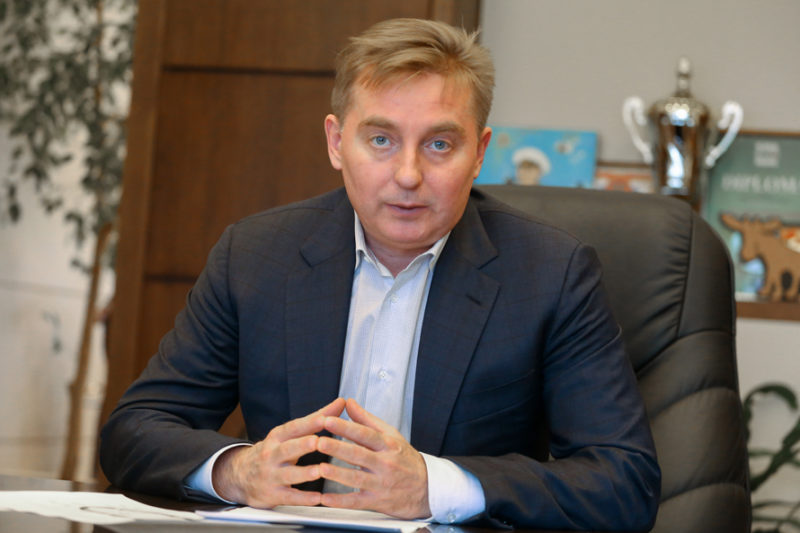Russian cities joined non-state actors across the world in leading the fight against dangerous climate change. The city of Moscow organised a two-day high level meeting starting on Monday, August 21, 2017 themed: “The Climate Forum of Russian Cities” signalling what observers describe as a clear commitment to advance the implementation of the Paris Agreement.

On the table were topics dealing with climate strategies, the science, transport, forestry and other matters. Most importantly however and for the first time the meeting discussed the role of cities and businesses in leading the rapid transition from fossil fuels to 100% renewable energy.
Important businesses and civil society leaders outlined this 100% renewable energy vision including the world’s biggest aluminium company RUSAL, Head of Moscow’s Department for Natural Resources Management and Environmental Protection, global initiative Mission 2020, C40 Cities Climate Leadership Group and Climate Action Network International.
“The momentum to transition to decarbonised economies and 100% renewable energy is unstoppable and desirable. It is the direction the world is taking, and not only for environmental reasons, but also for development, jobs, and security,” said CAN’s Executive Director Wael Hmaidan.
“We actively use energy efficiency measures in construction, urban economy and transport. At the moment, we have already saved 6 billion cubic meters of gas each year. With this amount you can heat a two millionth city,’’ said Head of Moscow’s Department for Natural Resources Management and Environmental Protection, Anton Kulbachevsky.
“Moscow is not London, which is going to become climate neutral by 2050, but until 2050 there is still a lot of time and new technologies appear every day. All cities are good, but different,” Kulbachevsky added.
“We were lagging behind for a long time, but now we are actively moving forward towards RES. Over the past few years the situation has radically changed. Legislation on energy efficiency has strongly evolved,” commented Alexander Krolin, head of the energy management department at the Moscow Power Engineering Institute.
Civil society leaders see in this meeting an important first step in the race to win over global markets of the future.
“Driven by exponential growth, innovation and competitiveness the world is on an inevitable pathway to 100% RE. The race is on to win these booming global markets and to reap the employment and social benefits of a renewable economy. Russia and the Central Asia region are blessed with unparalleled renewable energy resources and the federal government has only just begun to unlock this potential. An alliance of Russian cities with committed 100% RE plans can spur the Russian energy transition for the benefit of its people’s and businesses,” said Mission 2020 Chief Executive Andrew Higham.
Cities are responsible for up to 70% of global emissions, but also they can help achieve 40% of Paris Agreement goal. Non state actors can lead when the state government is not prioritising the climate change struggle. More and more cities are committing to go 100% renewable energy powered: Vancouver (Canada), San Francisco (USA), Malmö (Sweden), Jeju (Korea), Tshwane (South Africa) and many others. Moscow has not yet committed to this ambitious goal, but on the 21st of July the Mayor Sergey Sobyanin has announced that all public buses will be electric by 2020.
“C40’s Deadline 2020 research reveals the scale of the climate crisis facing cities and their huge potential to lead the fight against it. On average, emissions from buildings represent half of the total emissions generated by C40 cities. That is why mayors are incentivising energy efficient new buildings, retrofitting existing ones and investing in clean energy to power them. But cities can’t do it alone. Partnerships with international institutions, national governments and the private sector are essential to clean up the energy supply and decarbonise the building stock in our cities,” said Jana Davidová, Regions Team Officer, C40 Cities Climate Leadership Group.
“Aluminum production is widely used in all spheres of urban areas, from buildings and transport to power line and packaging materials. Modern aluminum production must meet the requirements of low-carbon development.In aluminum production based on hydropower carbon emissions occur 3-5 times less comparing with coal energy generation. Today more than 90% of RUSAL aluminum is produced with clear hydropower of Siberian rivers. The company set a goal to ensure its aluminum smelters use not less than 95% energy from hydroelectric stations and other sources of carbon-free generation by 2025,” said Assistant Manager of the RUSAL company, Sergei Chestnoy.
Climate Action Network (CAN) is a worldwide network of over 1100 non-governmental organisations in over 120 countries working to promote government and individual action to limit human-induced climate change to ecologically sustainable levels.
